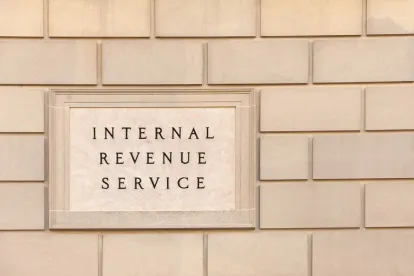On Nov. 9, the IRS may have endorsed a workaround to the $10,000 cap on state and local taxes when it comes to state and local taxes paid by passthrough entities. The Tax Cuts and Jobs Act of 2017 capped state and local tax (SALT) deductions at $10,000. This cap only applied to SALT deductions paid by individuals, not by corporations. This put passthrough entities (LLCs, partnerships, and subchapter S corporations) at a disadvantage, since SALT taxes on passthrough entity income are generally not paid at the entity level, but rather by the individual LLC member, partner, or S corporation shareholder, so that the SALT taxes that passed through to the owners were subject to this aggregate $10,000 SALT deduction cap.
Several states sought workarounds to this SALT deductions cap. Some states tried an individual state tax credit for charitable contributions to a state fund. Some tried a payroll tax credit. The IRS put an end to the charitable deduction credit with a regulation, and the payroll tax credit has not gotten much traction with businesses. On the other hand, some states (including Connecticut and New Jersey) enacted an entity-level tax on passthrough entities, with a corresponding state tax credit to the owners of the passthrough entity. It was uncertain whether the IRS would accept this entity-level tax workaround, and there has been speculation that the IRS might say that such entity level taxes are merely a payment by the passthrough entity of the owner’s tax liability, which would effectively shut down the entity-level tax workaround.
This speculation was proven wrong on Nov. 9 when the IRS published Notice 2020-75, which states that regulations will be promulgated that will allow this entity-level tax workaround. So far, only six states have enacted an entity-level tax: Connecticut, Louisiana, New Jersey, Oklahoma, Rhode Island, and Wisconsin. This workaround may lead to a wave of state tax laws imposing an entity-level tax on passthrough entities.
Furthermore, Notice 2020-75 expressly states that this favorable treatment will be allowed whether the state entity-level tax is mandatory, or elective. This is welcome news, since a mandatory state entity-level tax would disadvantage passthrough entities with owners who are exempt from state income tax, such as pension plans and charitable organizations. Of the six states which have already enacted an entity-level passthrough tax as a workaround to the $10,000 SALT deduction cap, only the Connecticut tax is mandatory – the other five states allow it if the entity elects to do so.
The rationale of this favorable tax treatment would apply to income earned by a passthrough entity from the conduct of a trade or business; consequently, it is possible that the regulations might limit the allowance of this SALT deduction workaround to income earned from the active conduct of a trade or business, and not for an owner’s share of the passthrough entity’s passive investment income. Otherwise, individual investors might place personal investment assets into passthrough entities to take advantage of this workaround so that they would be able to deduct state income taxes on their passive investment income.
The effective date allowing this treatment will be for entity-level taxes paid on or after Nov. 9, 2020, but if the state law was enacted prior to such effective date, then the entity-level deduction will be allowed dating back to the state’s enactment of the entity-level tax. As a result, pending confirmation when the proposed regulations are published, entity-level taxes already paid under the entity-level tax laws already enacted by the six aforementioned states’ SALT cap workaround rules should be allowed by the IRS without regard to the $10,000 SALT deduction cap.



 />i
/>i

